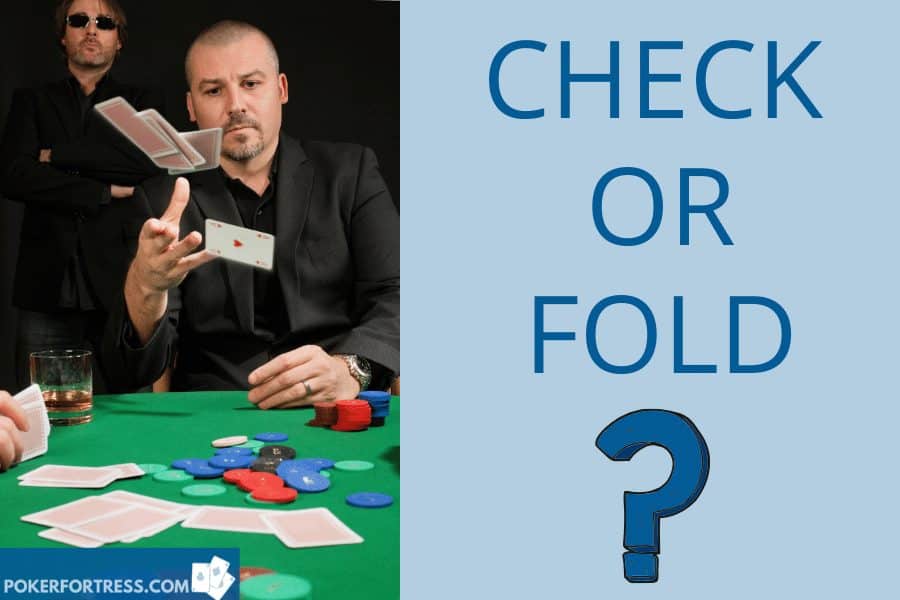Essentially, fold equity is the extra amount of equity you gain when you factor in how likely your opponent is to fold. Working out the correct amount of fold equity relies heavily on your ability to read an opponent. In other words, you need to be fairly certain of your chances to get an opponent to fold. The formula to work it out is as follows. When you fold your cards in poker you are no longer involved in the hand and lose all of the money that you have invested in the pot up to that point. Once your cards go into the “muck”, the hand is over for you. While you can no longer win the hand, you also cannot lose any more money or chips until the next hand.
This article is to help with the very basics of poker, specifically checking, opening, raising, re-raising and folding. If you know almost nothing about poker. The thought of playing has crossed your mind for whatever reason, but you don't know anything about the game. At first, the thought of raising may sound scary, as will knowing how to fold.

Checking
Checking is what one does if they wish to pass the action to the next player, but keep their cards. Checking gives one the option to raise, call, fold or even check again later on in the betting round. When one checks, they do not have to put anything into the pot unless they are playing in a game with a big blind and/or a small blind. If the action is checked to a player in the blinds, they have the option to check or raise.

The universal sign for checking in poker is to tap the table with one's hand.
Opening
Opening is what one does when they are essentially starting the round of betting in a poker hand. When one opens, it has either been checked to them or they are the first person to act. Many new players say 'raise' mistakenly in this situation, where the standard should be to say 'bet' or 'open.' Players that open will subsequently be faced with either a call, raise or folds from the other players at the table.
Calling

Calling is the mechanism used to call a bet. This is essentially matching the amount that has been put in by another player in the form of a bet or a raise. If nobody calls, the hand is over and the uncalled player wins the hand. If the hand makes it to the last round of betting, called the river, and Player A bets and Player B calls, then it goes to a showdown and the best hand wins.

Raising
Raising is the action one takes when they want to increase the opening bet. After raising it up, one will have to deal with either a call, fold or re-raise from the other players in the hand. Raising is associated with either having a strong hand or trying to win the pot on the spot with a well timed bluff.
Re-raising
Re-raising is exactly what it sounds like. It is the action of increasing a raise already put in by an opposing player. If there are three players in the hand and Player A opens, player B can raise that bet. At this point Player C or Player A can choose to re-raise when the betting action gets back on them. When faced with a re-raise, players have the options to call, fold or re-raise again.
Folding
Folding is the act of ending participation in a hand. No more bets are required to go into the pot by someone once they fold. Players can fold when it is their turn to act and they do not wish to continue. Most poker players do lots of folding preflop. The act of folding the cards themselves involves tossing them face down towards the dealer, who will put them into the muck (pile of folded cards).
What Is Fold In Poker Card Game
Tags
new to pokerpoker actionspoker bettingfoldingraisingcalling